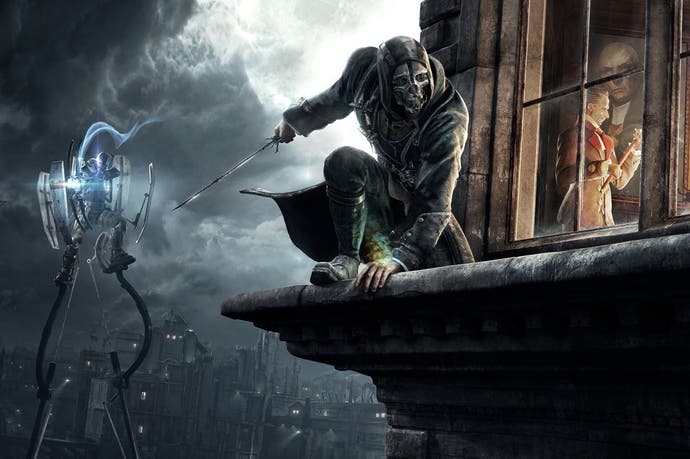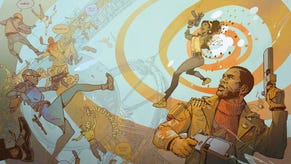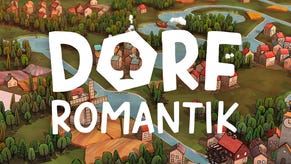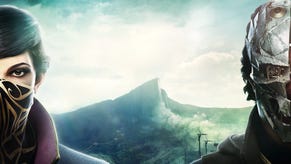Games of 2012: Dishonored
Solid sneak.
It's been a hell of a year for sneaky bastards. From Mark of the Ninja, which purists might even argue was the high point, to Far Cry 3, where I spent many a fabulous hour creeping up on STD-obsessed mercenaries - sometimes just to watch them being mauled by a passing tiger - everyone was at it. So much so, in fact, that we needn't mourn Assassin's Creed 3's relocation to the action-adventure genre, or the disappointment of Hitman: Absolution, which had its moments but ultimately satisfied neither fans of the series nor those who crouch worshipfully behind low walls. There was more than enough going on elsewhere to make up for them both.
Frankly, there was more than enough to make up for them both in Dishonored alone. Arkane Studios' much-hyped first-person adventure may have had a suite of chaotic offensive actions to master, multiple endings and all the other trappings of the modern triple-A game, but I preferred to ignore all of those and concentrate on remaining undetected, even by those people whose unconscious bodies I would carefully stow in every hiding place going, while simultaneously dusting every room for the digital fingerprints of its designers - whether they intended me to find them or not.
A lot of games allow you to make your own way through them and are full of things to discover, but for me Dishonored was just as much about the things going on outside the multiple choices, the collectable bone charms and the halo effects around readable in-game fiction. It was about the bricked-up third floor of the Hound Pits pub, it was about the pneumatic braces locking plague victims into their homes, it was about the boat elevator fronting the Dunwall Tower, and it was about the playbills floating in the Rudshore water. More to the point, it was about wondering about where those things came from.
When developers talk about iteration, they usually mean that the thing you see in the game used to be slightly different and those earlier versions were replaced once ideas were refined and improved upon during development. That clearly happened with Dishonored, but the difference is that the designers rarely excised their earlier ideas completely. The tower next to the Hound Pits used to be part of a much larger two-tower facade, but despite cutting one tower out of the game the developers still included jagged cuts in the brickwork to hint at its removal. Tallboys began life as lamp-lighters, before becoming monstrous stilted enforcers drunk on elixir, but their suits still incorporate the whale-oil canisters needed to light those long-forgotten lamps.
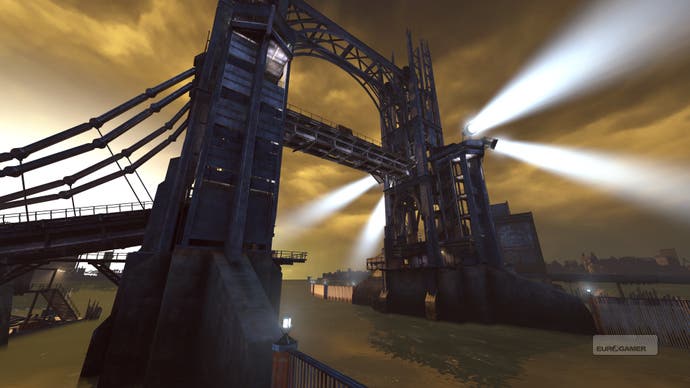
Like Far Cry 3, Dishonored is a game about dominating your environment, and like Mark of the Ninja, it's a game that lets you do so without betraying your actions, but more than either of those wonderful games, Dishonored makes you feel protective of what you're experiencing, because as your understanding of its history grows, you feel more and more privileged to be crawling through it. The inclusion of non-lethal takedowns was a delightful decision, but by the time I finished my Clean Hands playthrough I had so much affection for what I was experiencing that I almost wanted the option to put on kid gloves and put things back after handling them as well.
I think some of this is a European thing. Many of our cities are old and layered, full of different ideas from different times rubbing up against one another, sometimes on the same street (hell, sometimes even on the same building). That sort of thing is all over Dishonored. We're also used to the encroachment of science, industry and security on historical architecture, and Dishonored has that too, in things like the City Watch booths standing out on cobbled streets like so many steel-reinforced bollards outside the British Houses of Parliament. It all conspires to make the game feel more like home to me than most.
Looking back on Dishonored, it's interesting to think about my own suspension of disbelief, too. There are so many bizarre things that this creepy genre has taught us to take for granted, like the way unconscious enemies will be completely unharmed but will never wake up no matter how long you remain in the vicinity, or the way nobody ever notices items removed from their surroundings as long as they never notice you performing the removal. It's easy to allow these things in Dishonored, as it is in many of these sorts of games, because of course it's a willing suspension of disbelief, and once a game like Dishonored has you onside then it rarely poses a threat to your willpower.
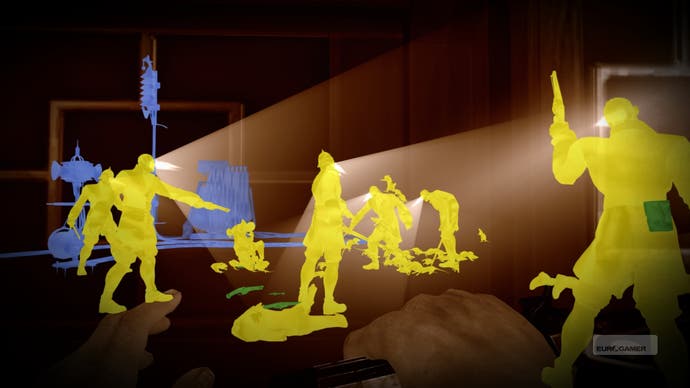
There is one thing on the game's stealth spectrum that gave me pause, though, and that was Dark Vision. I'm not fundamentally opposed to these see-through-walls powers - best exemplified elsewhere by Batman's Detective Mode - but in Dishonored's case it changes the flow of the game. With Dark Vision, you tend to hide and wait for gaps, but Dishonored already has an excellent lean control (keeping you completely concealed) and the ability to peer through keyholes, and I think it's a more tense and rewarding game if you rely on those instead.
Not least, of course, because you can use them in concert with Blink, and of all the supernatural tricks at your disposal in Dishonored, Blink's short-range teleportation is the thing we will probably still be talking about in years to come. Like Batman's grappling hook, it gives the apex predator a handy route up to an actual apex, but in Dishonored's case it's also a way to cover ground on any axis more or less instantly, and the perfect application of that extra speed to flank or evade without detection is more empowering to me than the comforting fad of environmental clairvoyance.
Dishonored wasn't my favourite game this year, then, and I'm not sure it was the best, either, but I think it might have been the one I found most interesting. It wasn't just about being a murderous avenger or a silent protector; it was about being a ghost, a superhero, an amateur historian, and much more besides. I am still enjoying it, two months after I stopped playing it, because I keep going back in my head. That's partly because I'm a sneaky bastard, but it's also partly because games are often transient experiences, forgotten until someone reminds you about them 10 years later, and, for a multitude of lovable reasons, Dishonored may be one of the few that escapes that categorisation.
